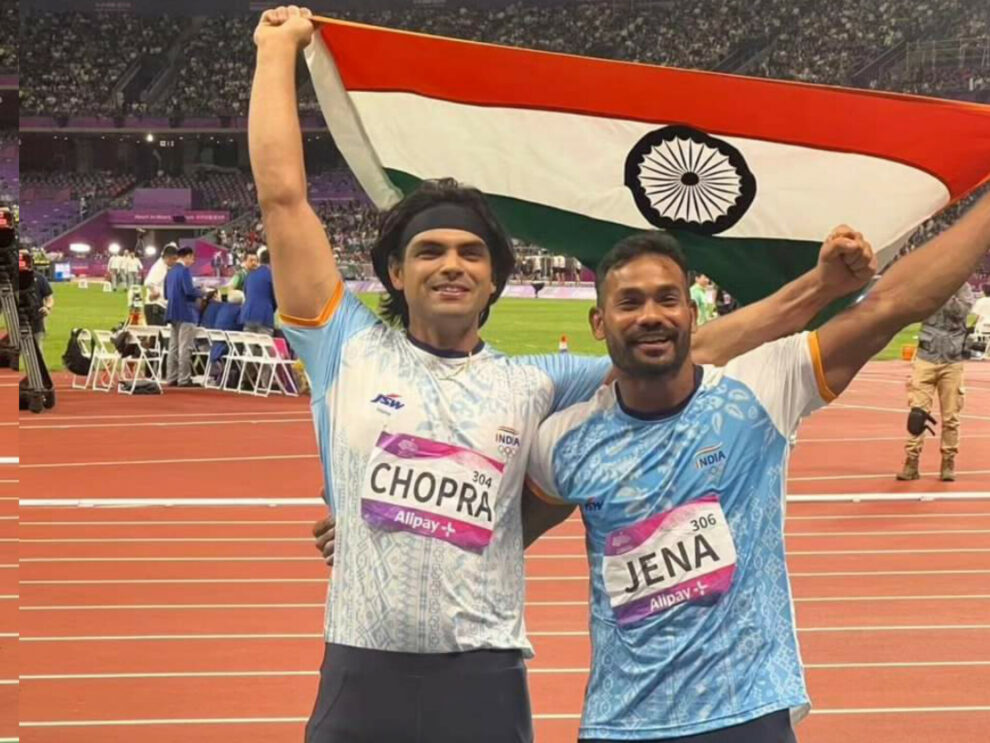NEW DELHI — The Asian Games in China’s Hangzhou wrap up on Sunday, concluding a two-week sports spectacle punctuated by controversy between two of the region’s biggest geopolitical rivals.
The Indian team has enjoyed its best showing on record, bagging over 100 medals — easily topping the country’s previous best of 70 at the Jakarta Asian Games in 2018. Nevertheless, Indian athletes and experts have repeatedly voiced frustration over the officiating in Hangzhou, openly accusing China of unfair treatment.
The neighbors got off on the wrong foot at the beginning of the games, after three martial artists from a northern Indian state claimed by China were unable to enter the country. An Indian government spokesman claimed the athletes had been “discriminated against,” while China’s foreign ministry representative said the host nation “welcomes athletes from all countries to the games using legal identification.”
India’s sports minister cancelled a planned visit to the games in protest.
On the field, another dispute erupted this past Wednesday, when Olympic gold medalist and reigning world champion Neeraj Chopra’s first attempt at the javelin throw was not measured by Chinese officials. Abdulrahman Alazemi of Kuwait was then asked to proceed with his first throw, despite the standard practice of ensuring each athlete’s score is confirmed before the next competitor gets the green light.
The failure to measure the throw prompted a furious Anju Bobby George, a former long jumper and vice president of the Indian Athletics Federation, to accuse China of “trying to cheat” and “deliberately target the Indians.”
“I haven’t seen such foul play at any international games in my long career,” she said.
Some reports said Chopra’s attempt was not recorded due to a “technical glitch.” He went on to win the gold medal anyway.
“I was puzzled and confused,” Chopra said of the missed measurement. “It has never happened in any competition I have competed in till now.”
Chopra’s compatriot Kishore Kumar Jena, who secured the silver medal, was also wrongly flagged for an illegal attempt. Footage of the incident showed Jena was comfortably inside the foul line and that the linesmen had made the incorrect call. When Jena protested, the decision was overturned. “I have never seen anything like this anywhere ever, not even at a domestic level or small competitions in India,” Jena said.
Chinese experts have debunked allegations of foul play at the games, stating that controversies are par for the course at major sporting events. International China strategist Andrew K.P. Leung told Indian outlet CNN-News18 that China has easily topped the medal tally and thus “there’s no need for it to stoop so low as to discriminate against Indian athletes.”
China won over 350 medals, far more than any other nation.
Speaking during a segment titled “China’s Unsporting Behavior at Hangzhou,” he said that “such charges and counter charges are levelled all the time in international games and are nothing new.”

Still, there were other questionable calls.
When Chinese star runner Wu Yanni made a false start in the women’s 100m hurdles, India’s Jyothi Yarraji was also hit with a red flag. After protests, both were ultimately allowed to continue. George, the Indian athletics official, claimed that the authorities wanted to ensure Wu could run.
Yarraji finished third, but was later upgraded to silver when Wu was disqualified after the race.
Meanwhile, some in the Indian contingent also argued that long jumper M. Sreeshankar’s jumps and Annu Rani’s javelin throws were not accurately measured.
Whatever the validity of these claims may be, the friction at the Asian Games highlights growing bitterness between the nuclear-armed neighbors.
India-China relations have hit a nadir since their troops clashed along their disputed border in the Galwan Valley in 2020. That confrontation left 20 Indian and four Chinese soldiers dead — the first deadly battle between the neighbors in about four decades.
Indian political leaders have reacted sharply to the controversies surrounding athletes at the Asian Games. Abhishek Manu Singhvi from the opposition Indian National Congress party branded China a rogue nation and questioned why it was allowed to host such an international event.
Former diplomat Ashok Sajjanhar commented that it seemed India was being “singled out for such bias as athletes from no other country have protested about foul play at the games.”
“The sportsman spirit is missing from the Chinese side,” Sajjanhar said. “There’s more than meets the eye at the games.”
Source : Asia Nikkei















